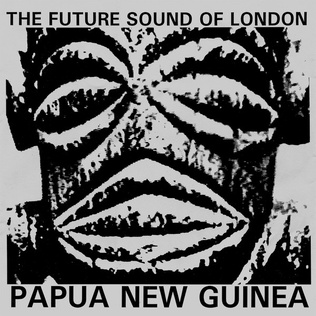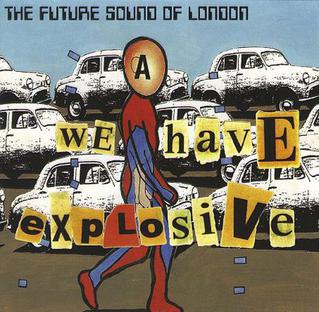
In statistics and statistical physics, the Metropolis–Hastings algorithm is a Markov chain Monte Carlo (MCMC) method for obtaining a sequence of random samples from a probability distribution from which direct sampling is difficult. New samples are added to the sequence in two steps: first a new sample is proposed based on the previous sample, then the proposed sample is either added to the sequence or rejected depending on the value of the probability distribution at that point. The resulting sequence can be used to approximate the distribution or to compute an integral.

Future Crew was a Finnish demogroup that created PC demos and software, active mostly between 1987 and 1994.

Giovanni Giorgio Moroder is an Italian composer and music producer. Dubbed the "Father of Disco", Moroder is credited with pioneering Euro disco and electronic dance music. His work with synthesizers had a significant influence on several music genres such as hi-NRG, Italo disco, synth-pop, new wave, house, and techno music.

Velvet Acid Christ (VAC) is an electro-industrial band based in Denver, Colorado. The band was formed in 1990 by its leader vocalist, musician, and producer Bryan Erickson, and later featured various ex-members of Toxic Coma. The project gained limited popularity in Europe's underground nightclub scenes during the mid-1990s with the compilation Church of Acid (1996) before expanding into other markets in the goth and industrial subcultures. The band's discography includes 14 albums, the latest being Ora Oblivionis (2019).
In statistics, Markov chain Monte Carlo (MCMC) is a class of algorithms used to draw samples from a probability distribution. Given a probability distribution, one can construct a Markov chain whose elements' distribution approximates it – that is, the Markov chain's equilibrium distribution matches the target distribution. The more steps that are included, the more closely the distribution of the sample matches the actual desired distribution.

The Future Sound of London is a British electronic music duo composed of Garry Cobain and Brian Dougans. They have been described as a "boundary-pushing" electronic act, covering techno, ambient, house music, trip hop, psychedelia, and dub.
Ambient house is a downtempo subgenre of house music that first emerged in the late 1980s, combining elements of acid house and ambient music. The genre developed in chill-out rooms and specialist clubs as part of the UK's dance music scene. It was most prominently pioneered by the Orb and the KLF, along with artists such as Global Communication, Irresistible Force, Youth, and 808 State. The term was used vaguely, and eventually fell out of favor as more specific subgenres were recognized.

Meat Beat Manifesto, often shortened as Meat Beat, Manifesto or MBM, is an electronic music group originally consisting of Jack Dangers and Jonny Stephens that was formed in 1987 in Swindon, United Kingdom. The band, fronted by Dangers, has proven versatile over the years, experimenting with techno, breakbeat, industrial, dub and jazz fusion while touring the world and influencing major acts such as Nine Inch Nails, the Chemical Brothers and the Prodigy. Some of the band's earlier work has been credited with influencing the rise of the trip hop, big beat, and drum and bass genres.
A metropolis is a large city.

Grendel is a Dutch music group formed in 1997. Their music is in the electro-industrial genre. Their name originates from the beast in Beowulf.

Ghosts... of the Civil Dead is a 1988 Australian drama-suspense film directed by John Hillcoat. It was written by Hillcoat, Evan English, Gene Conkie, Nick Cave and Hugo Race. It is partly based on the true story of Jack Henry Abbott.

Dead Cities is the third studio album by the British electronic music duo The Future Sound of London. It was released through Virgin Records in October 1996. The record entered the Dance Albums Chart at No. 2 and the Albums Chart at No. 26.

ISDN is a music album by experimental electronica artists The Future Sound of London which was released in two different versions in 1994 and 1995. The music on the album is edited together from various live broadcasts that the band had transmitted to radio stations all over the world using ISDN networking. At the time ISDN was a relatively new technology that had the bandwidth to carry high-quality digital audio. The band repeated the format in 1997 with the limited edition ISDN Show, another live album of ISDN broadcasts.

"Papua New Guinea" is a 1991 song by the electronic music group Future Sound of London. It was the group's debut single and later appeared on their full-length album Accelerator. The single reached #22 on the UK singles chart.

"Lifeforms" is a song by British electronic music duo The Future Sound of London, released as a single through Virgin Records on 1 August 1994. It is the second single from their 1994 album, Lifeforms. Vocals on the single were performed by Elizabeth Fraser of the Cocteau Twins.
The Yamaha SY85 is a digital music workstation introduced in 1992. Unlike other Yamaha synthesizers of the time the SY85 does not use FM synthesis. Instead, its sounds are based on samples, which can be layered and modified to create new sounds.

"We Have Explosive" is a song by The Future Sound of London, released in 1997. It was the band's most successful single, getting to number 12 in the UK Singles Chart in 1997. It features prominent sampling of the Run-DMC album Tougher Than Leather. Part three also samples "Rockchester" by Fats Comet.

Beyond the Infinite is the third album released by the multi-genre trance group Juno Reactor.

In sound and music, sampling is the reuse of a portion of a sound recording in another recording. Samples may comprise elements such as rhythm, melody, speech, or sound effects. A sample can be brief and only incorporate a single musical note, or it can consist of longer portions of music, and may be layered, equalized, sped up or slowed down, repitched, looped, or otherwise manipulated. They are usually integrated using electronic music instruments (samplers) or software such as digital audio workstations.
This is the discography page for ambient electronic group the Future Sound of London. All works released as the Future Sound of London unless otherwise noted.

















